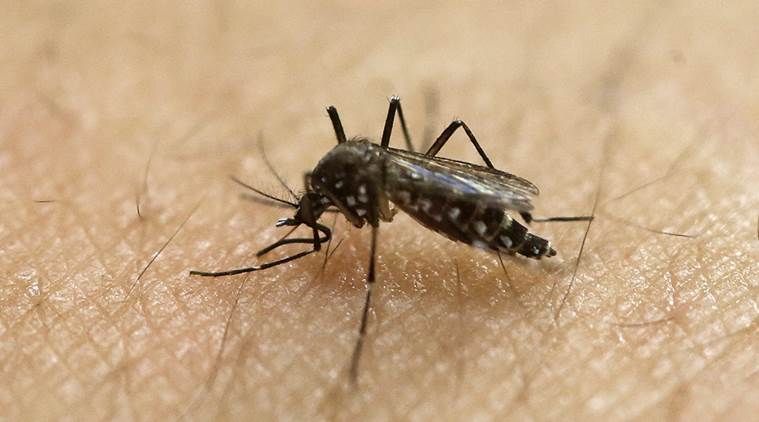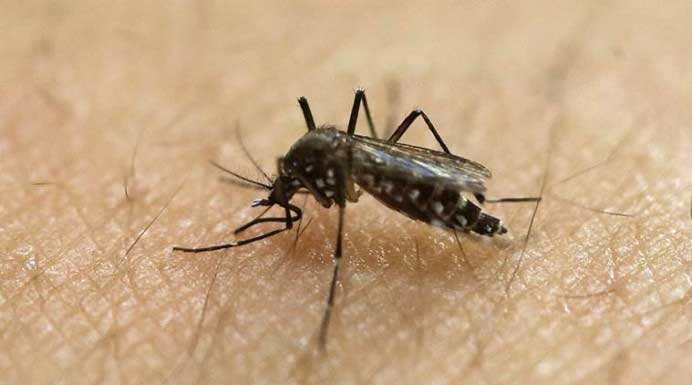Mosquito breeding detection has reduced to eight per cent across government buildings in the city, the latest inspection conducted by the Brihanmumbai Municipal Corporation’s (BMC) insecticide department has found. Of the 6,232 government buildings inspected for breeding sites, 1,858 water tanks were found to be non-mosquito proof.
“Until last year, we saw that only 85 per cent institutions ensured that their tanks were mosquito proof. This is the first time that the compliance has reached 92 per cent,” said insecticide officer, Dr Rajan Naringrekar. The intensive drive comes ahead of monsoons, with which vector-borne diseases, specially malaria and dengue, record a spike.
According to a BMC report, maximum breeding was found in Public Works Department buildings with 536 non-mosquito proof spots, Central Railway with 446 such spots and the Central Public Works Department with 252 breeding spots. While the Western Railways owns 636 buildings, it has only 3.7 per cent tanks that have no mosquito proofing. On the other hand, Central Railway has 577 premises, of which 23.5 per cent had breeding spots.
In May, the BMC conducted inspections across 23,135 water tanks in government-owned premises. Of these, 21,277 had been mosquito-proofed, and 1,858 remained unprotected. “Not only government agencies, residential societies also need to routinely ensure that the premises are free from mosquito breeding. Since Aedes aegypti breeds indoors, our department cannot go everywhere to clean the breeding spots,” Naringrekar said.
According to civic officials, with detection of three Zika positive cases in Ahmedabad and frequent commute of residents between Ahmedabad and Mumbai, efforts to kill Aedes Aegypti mosquito and prevent its breeding have strengthened. Aedes aegypti is a common vector for both dengue and zika infections. While cases of dengue have steadily increased in the city since 2011, Zika is yet not considered a threat in Mumbai, officials claim.
Between January and April this year, the insecticide department inspected buildings of 65 government agencies. A notice was first served to government buildings in April where mosquito breeding sites were found with the Mumbai Metropolitan Region Development Authority (MMRDA), Maharashtra Housing and Development Authority (MHADA), Mumbai Port Trust, Bhabha Atomic Research Centre and airport jurisdiction owning maximum buildings in the city and recording maximum cases of mosquito breeding.
An inspection across residential societies and private corporate offices found Aedes aegypti mosquito breeding in 1,997 spots from where the BMC insecticide department collected fine of Rs 14.3 lakh after serving 4,746 notices. While government buildings were initially served a notice, the BMC is now set to serve final notices under Section 381(B) of the Mumbai Metropolitan Act to those who defaulted in making water tanks mosquito proof. Fine under the act starts at Rs 2,000 and extends up to Rs 10,000.
Source: The Indian Express

FILE – In this Jan. 18, 2016, file photo, a female Aedes aegypti mosquito, known to be a carrier of the Zika virus, acquires a blood meal on the arm of a researcher at the Biomedical Sciences Institute of Sao Paulo University in Sao Paulo, Brazil. A Utah man who mysteriously contracted Zika from his infected father may have got it by touching his dad’s tears or sweat with his bare hands, according to new research unveiled Wednesday, Sept. 28, 2016, that found the unusual transmission method was likely caused by his dying father having 100,000 times the normal level of the virus. (AP Photo/Andre Penner, File)



